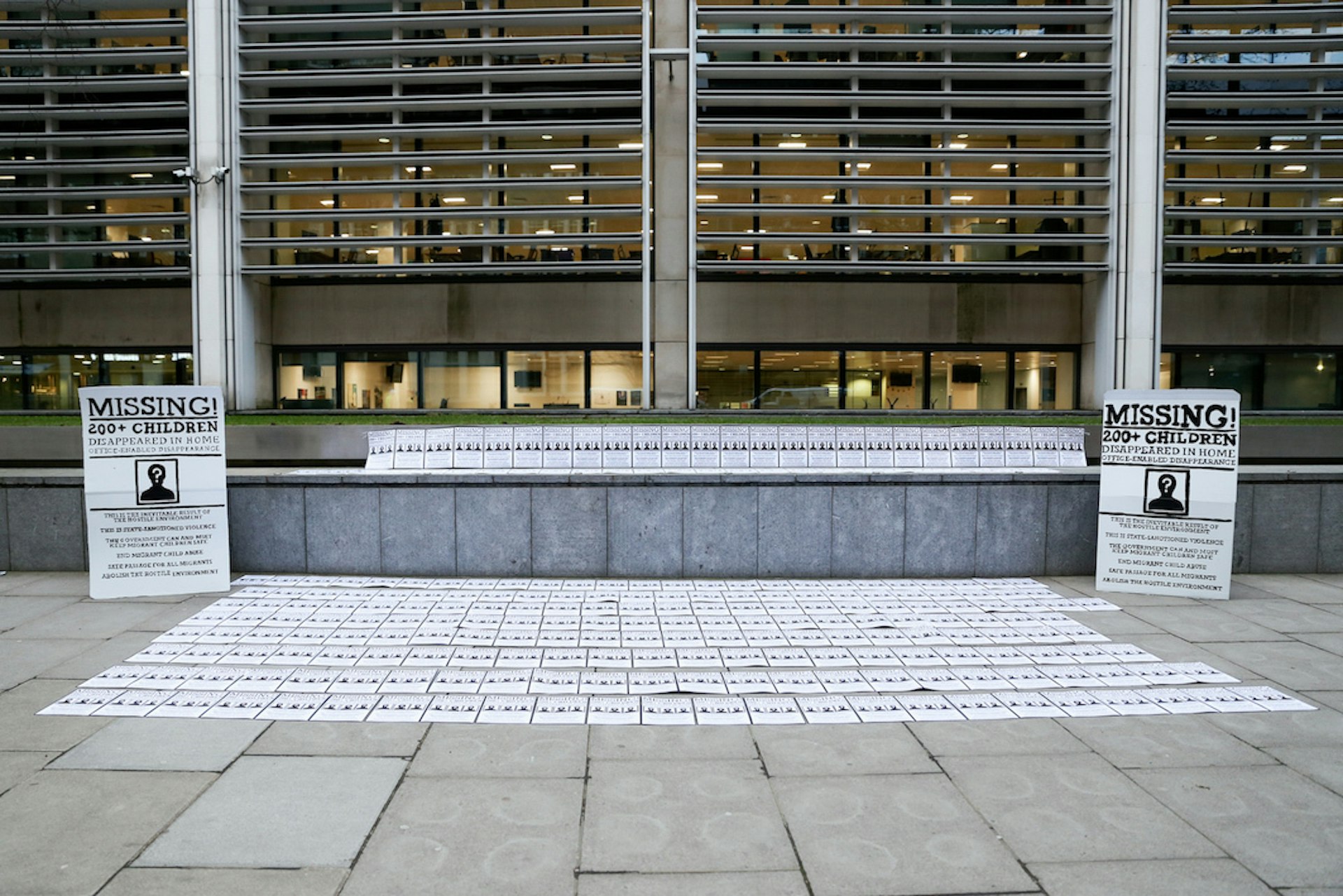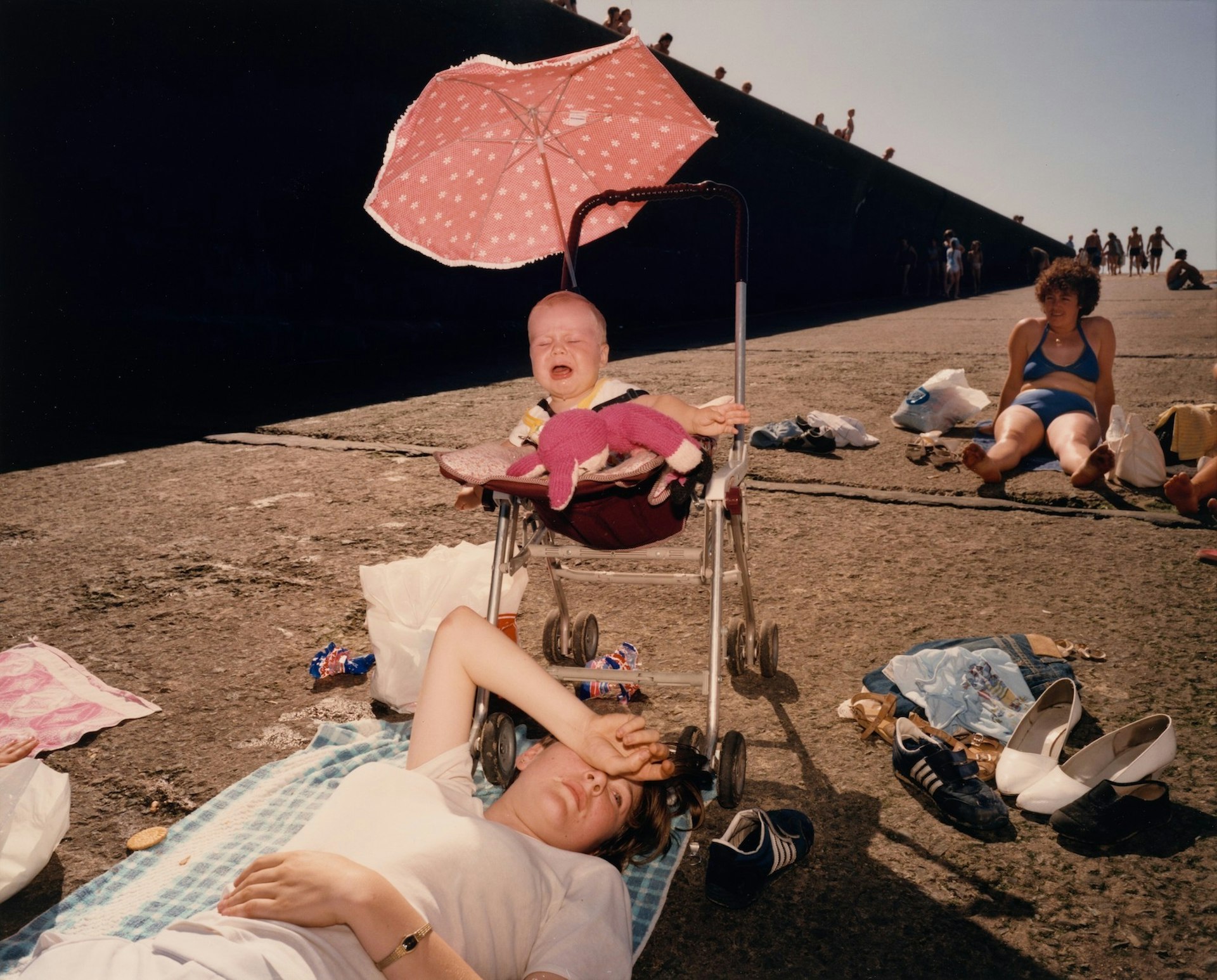
Chronicling radical shifts across the UK in the 70s & 80s
- Text by Miss Rosen
- Photography by New Brighton, Merseyside from the series The Last Resort, 1984 by Martin Parr
At a time when the UK was undergoing tremendous political, economic, and social changes, a new generation of emerging photographers kept pace. Now, a new exhibition, This Is Britain: Photographs from the 1970s and 1980s, brings together work by artists who chronicled the nation as it grappled with the impact of deindustrialisation, racial unrest, The Troubles in Northern Ireland, and the neoliberal policies of prime minister Margaret Thatcher.
“I realised that the 1970s and ‘80s marked a true renaissance in British photography, a time when artists from many backgrounds pushed the medium to new limits while grappling with profound upheaval in British society,” says Kara Felt, Assistant Curator of Art at the Denver Botanic Gardens, who organised the exhibition.
Using the 1991 MoMA exhibition British Photography from the Thatcher Years as a departure point, Felt recognised there was far more to the story of the era than the perspectives of five white British men photographers. For This Is Britain, Felt selected works by artists including Vanley Burke, Pogus Caesar, Anna Fox, Sunil Gupta, and Chris Killip, who offered a more expansive view of the changing nation.
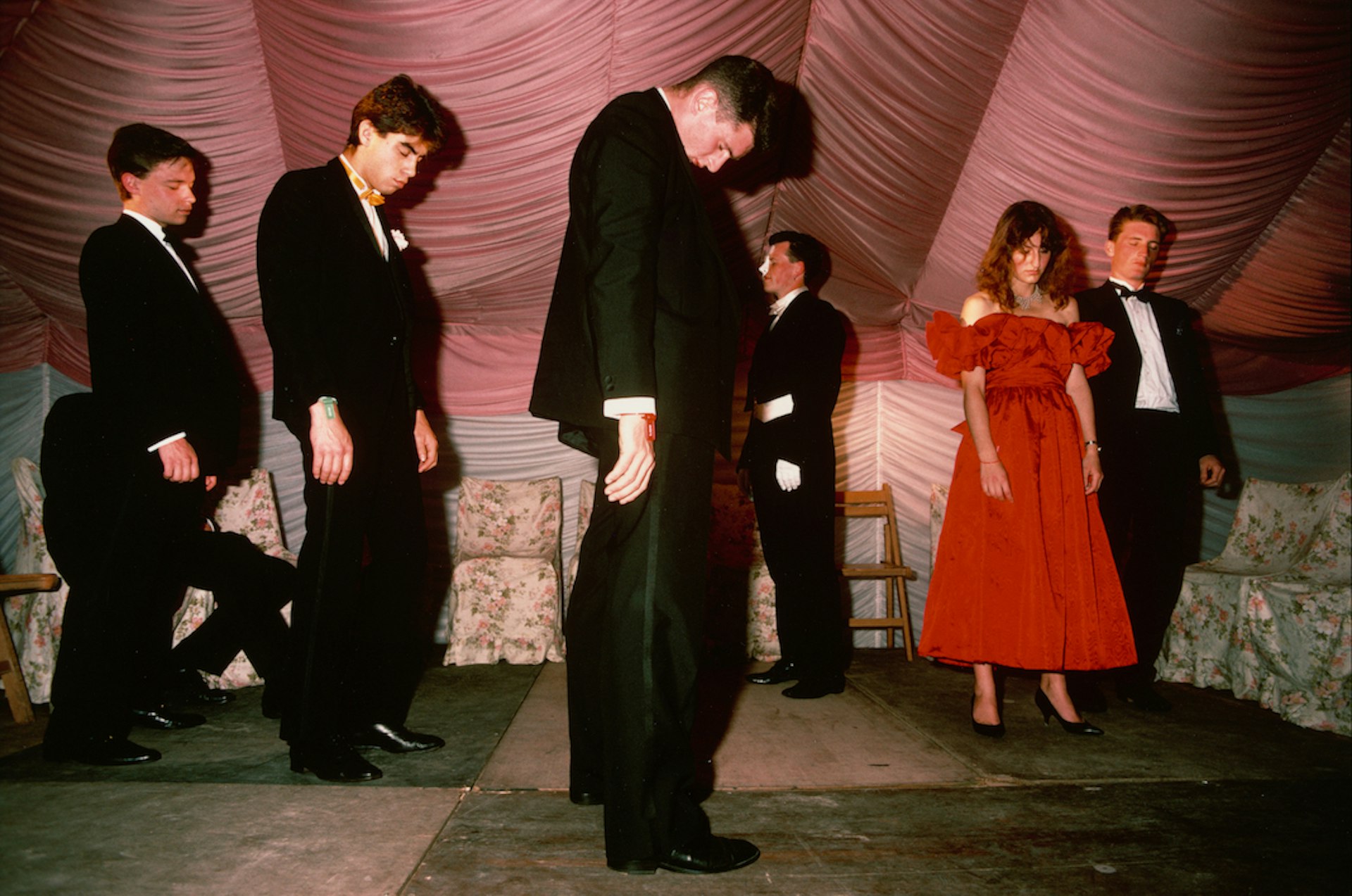
Hypnosis Demonstration, Cambridge University Ball, 1980–1989 by Chris Steele-Perkins
“Though many of the artists are not British, they are all engaged citizens commenting on the profound changes shaking British society in this era,” says Felt. “Whether seeking to preserve a past that was slipping away, poking fun at emerging cultural priorities, or bearing witness to the major conflicts of the day, these artists felt a responsibility to comment on the broader landscape.”
As photography gained prominence in the UK during the ‘70s, a rapidly growing network of galleries, collectives, schools, and publications came to the fore, providing space for fresh perspectives from historically marginalised groups. Combing through exhibition checklists and periodicals and speaking with many photographers and curators, Felt curated This Is Britain to reflect how photography itself attracted a wide range of practitioners across race, gender, and class.

Boy with Flag, Winford in Handsworth Park, 1970 by Vanley Burke
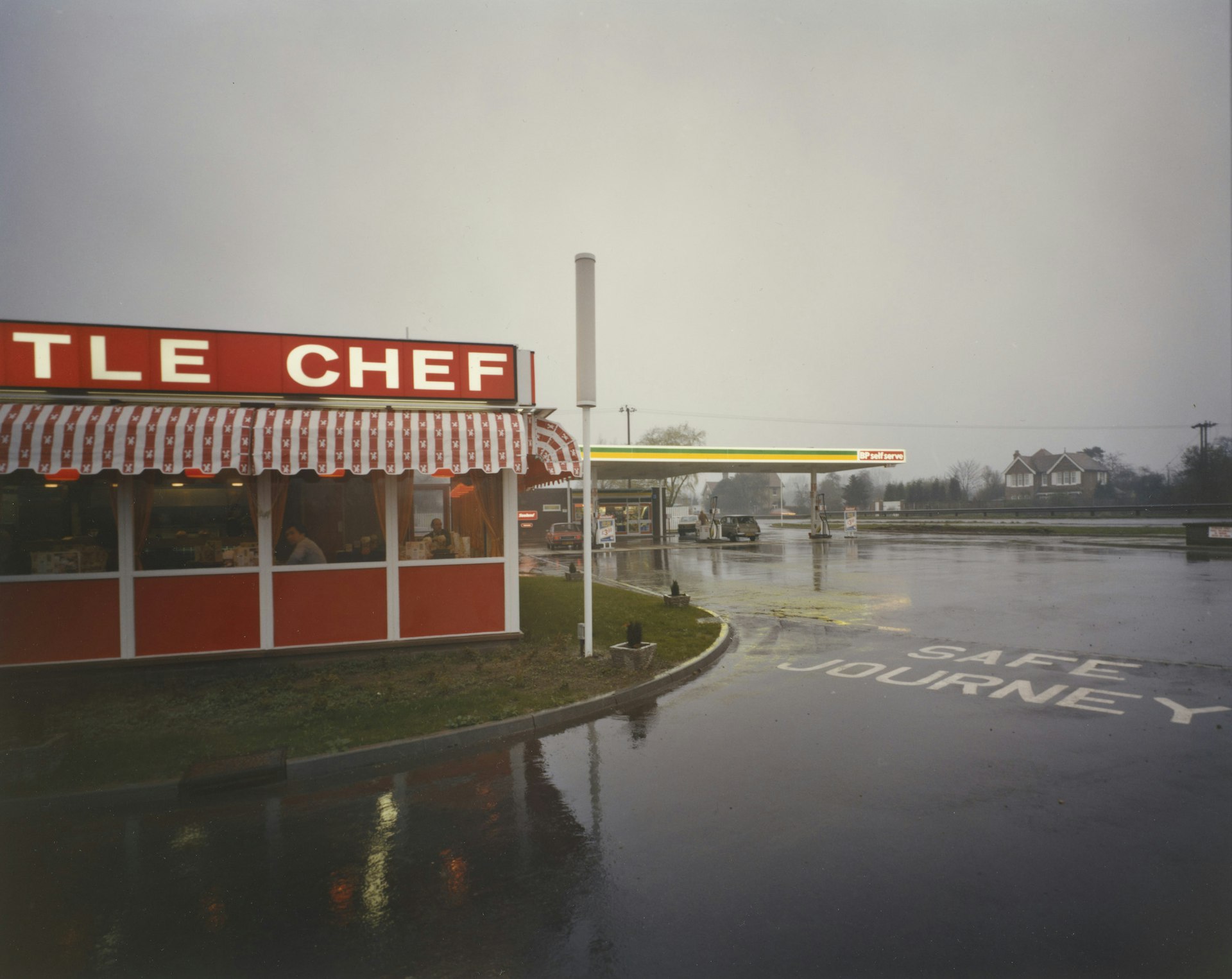
Little Chef in Rain, St. Neots, Cambridgeshire, May 1982 by Paul Graham
“What was especially exciting to me was discovering the many women, artists of colour, and immigrants who shaped photography in this era in important ways but were largely excluded from the record of this time,” she says.
Felt notes that most of the photographers included in the show did not profess any real desire to change the world. “In that sense, they have more in common with photographers associated with the New Documents, whose aim the curator John Szarkowski described in 1967 as ‘not to reform life but to know it,’” she says.
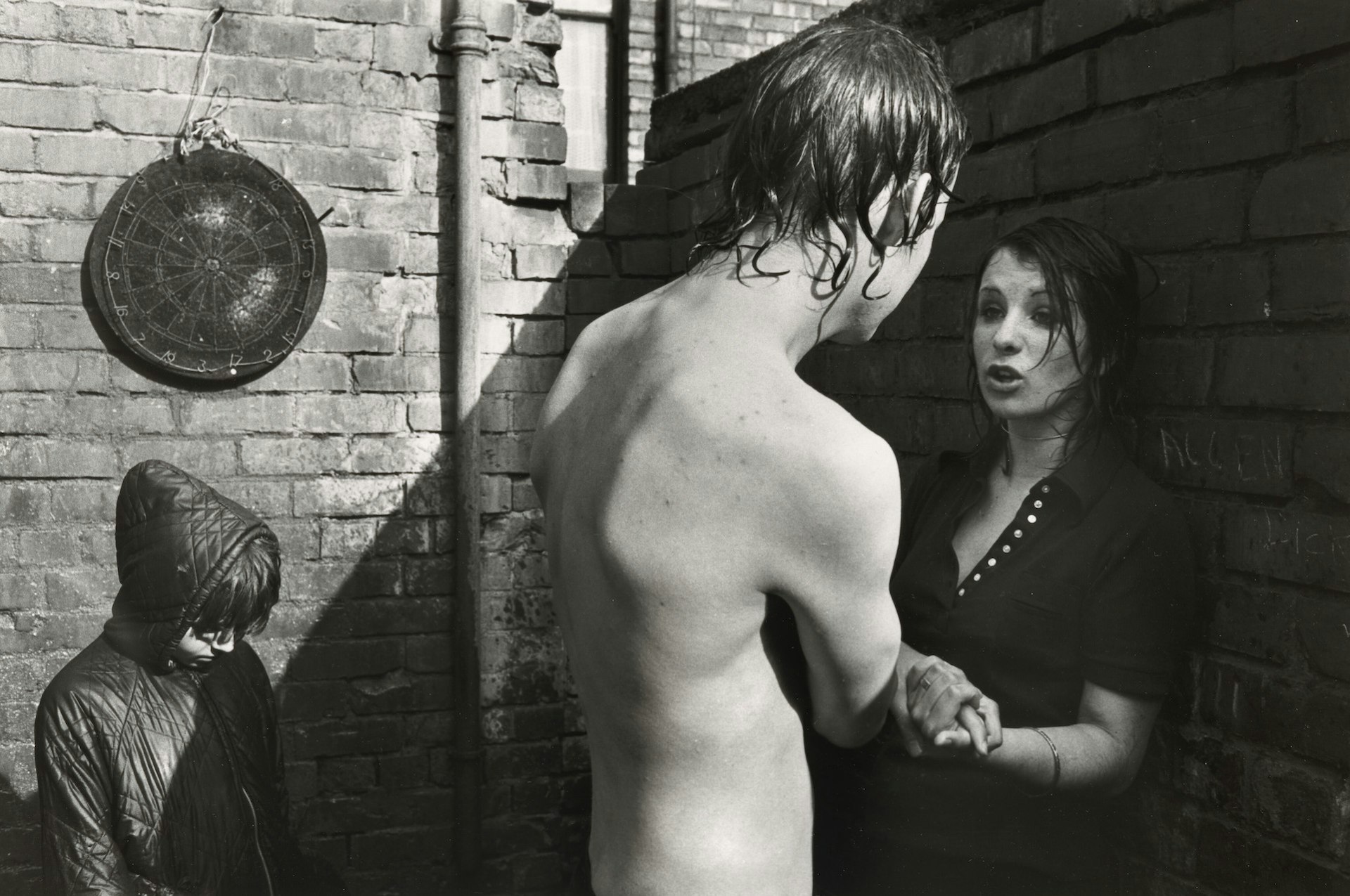
Young Couple in a Backyard on a Summer’s Day, 1975, printed 2012
However, some work proved to have real consequences for the people of Britain. Felt points to Finnish photographer SirkkaLiisa Konttinen who lived Newcastle’s Byker neighbourhood from 1969 until 1975.
“LiisaKonttinen became close to the community whose homes were slated for demolition as part of a redevelopment project,” says Felt. “Her photographs convey the angst and melancholy of people whose homes were falling victim to urban renewal efforts in the wake of deindustrialisation – and ultimately influenced efforts to preserve some of the historic buildings that were being demolished.”
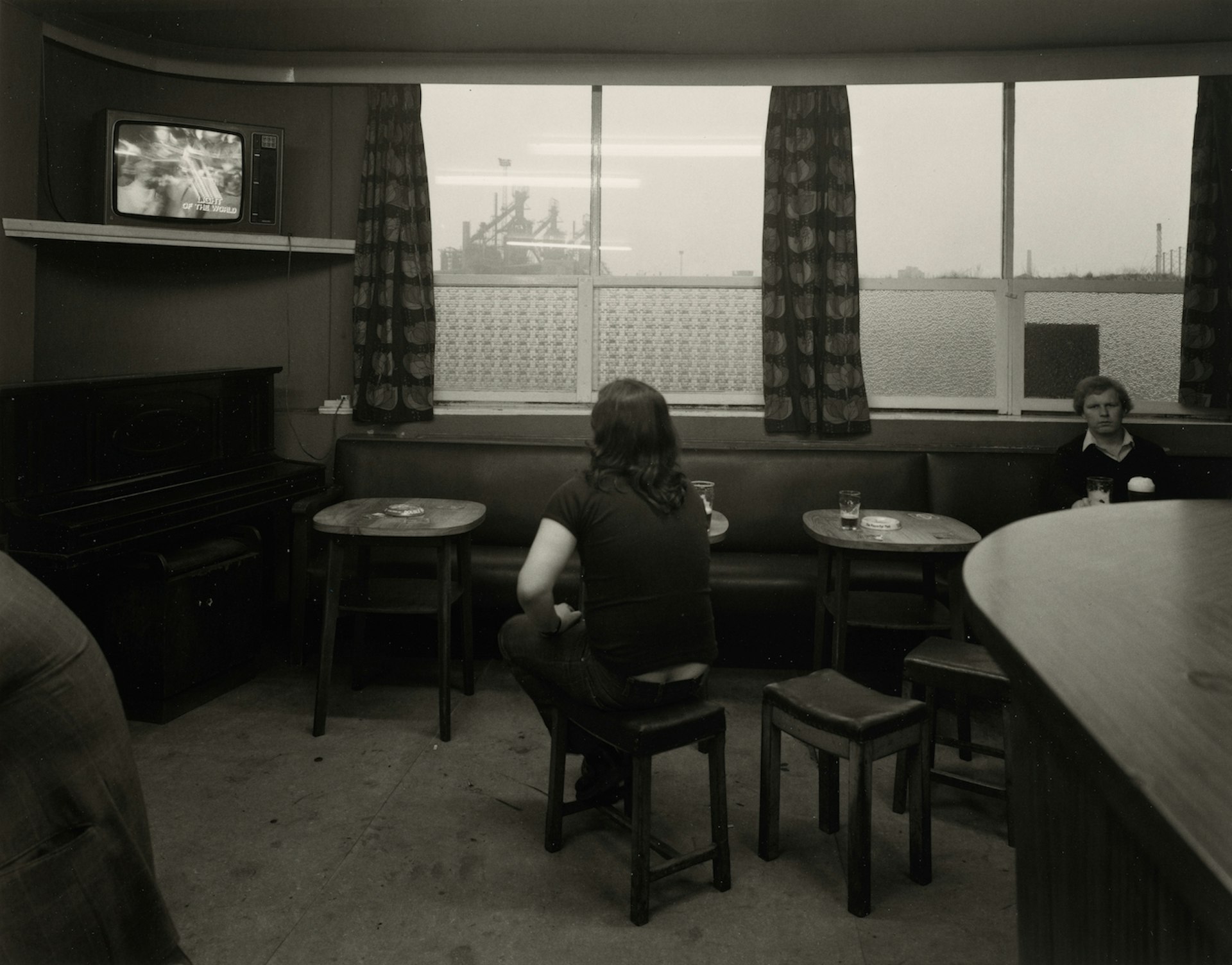
The Queen’s Pub, Southbank, Middlesbrough, 1981 by Graham Smith
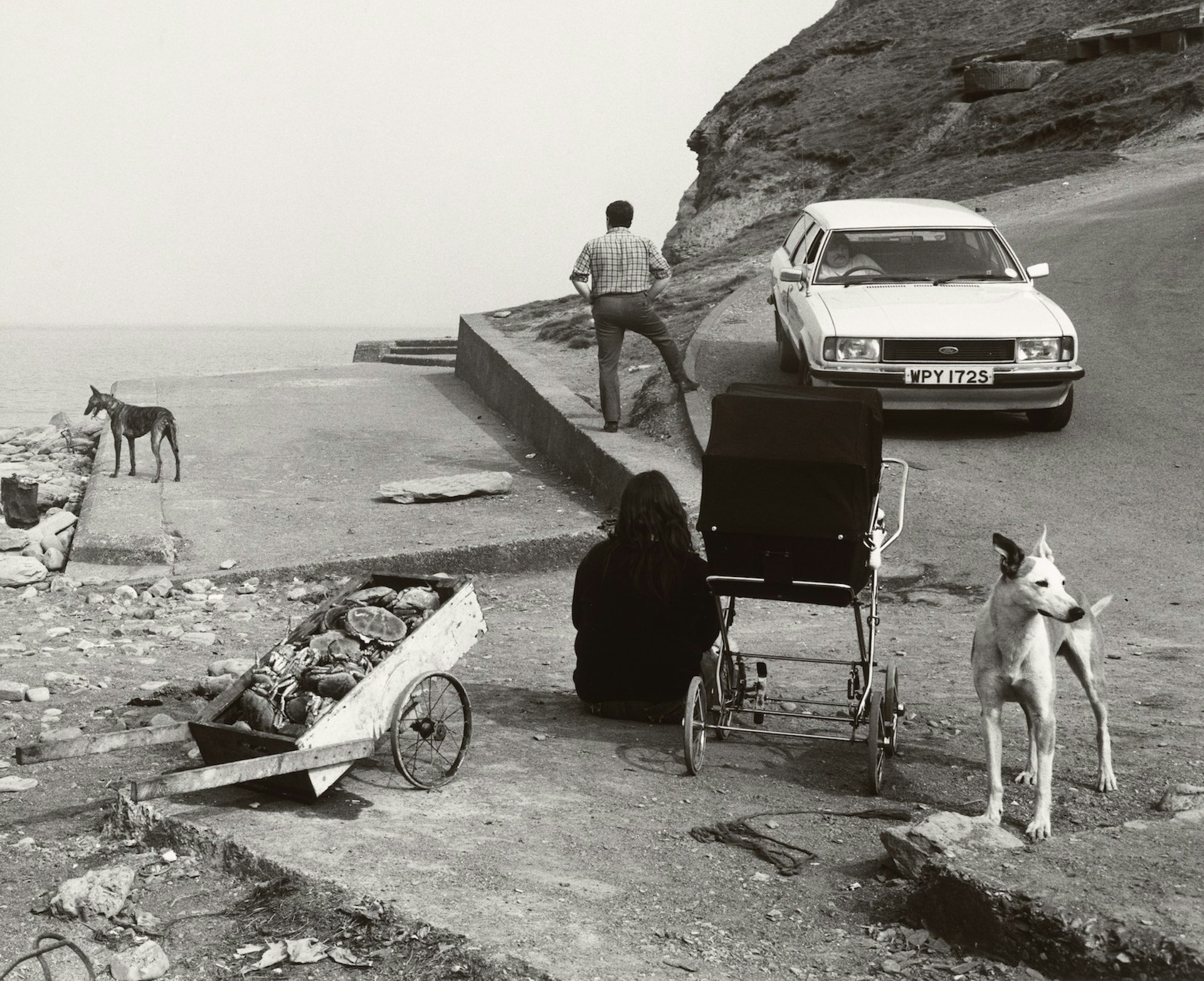
Crabs and People, Skinningrove, North Yorkshire, UK, 1981 by Chris Killip
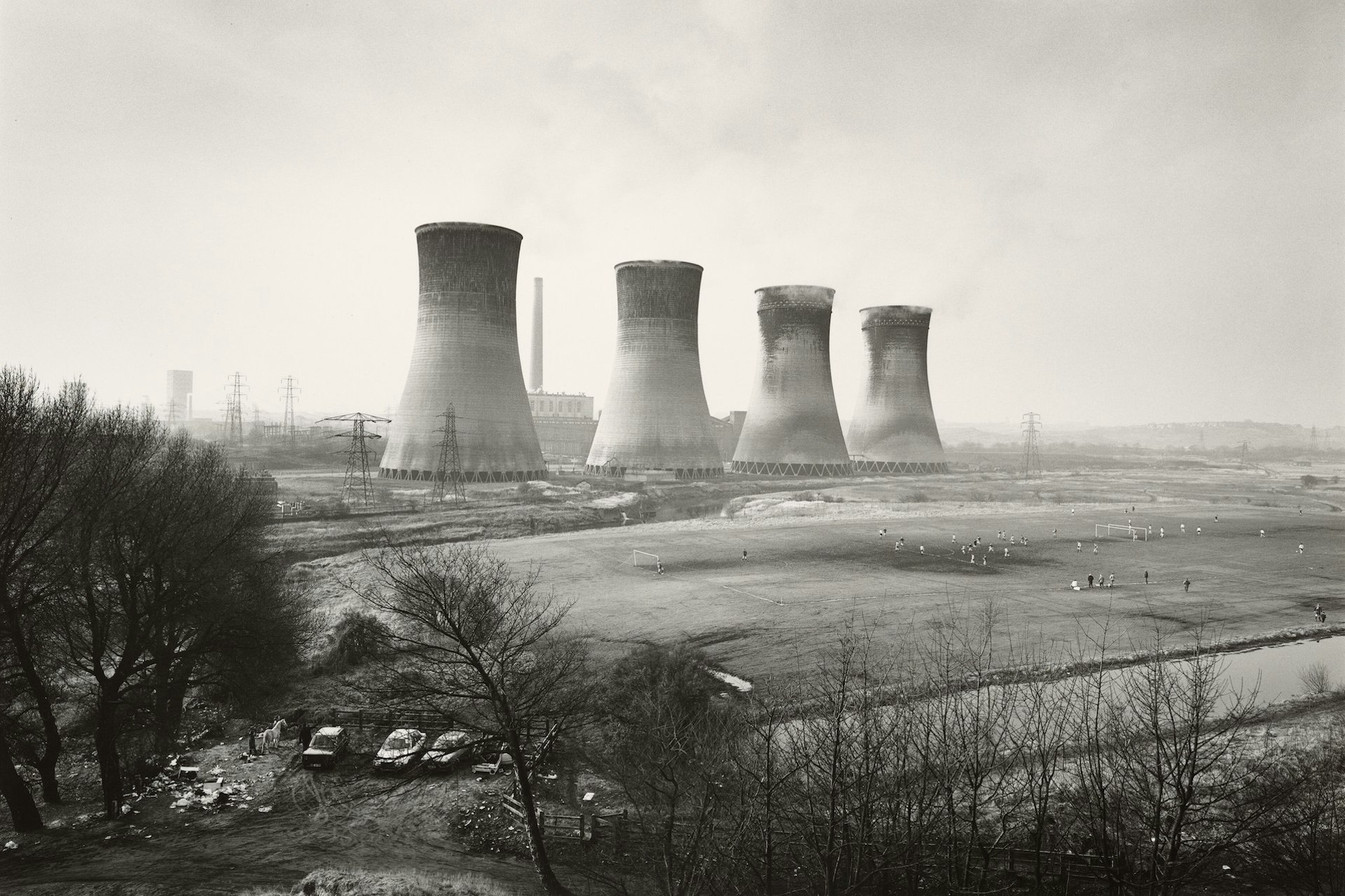
John Davies Agecroft Power Station, Salford, 1983
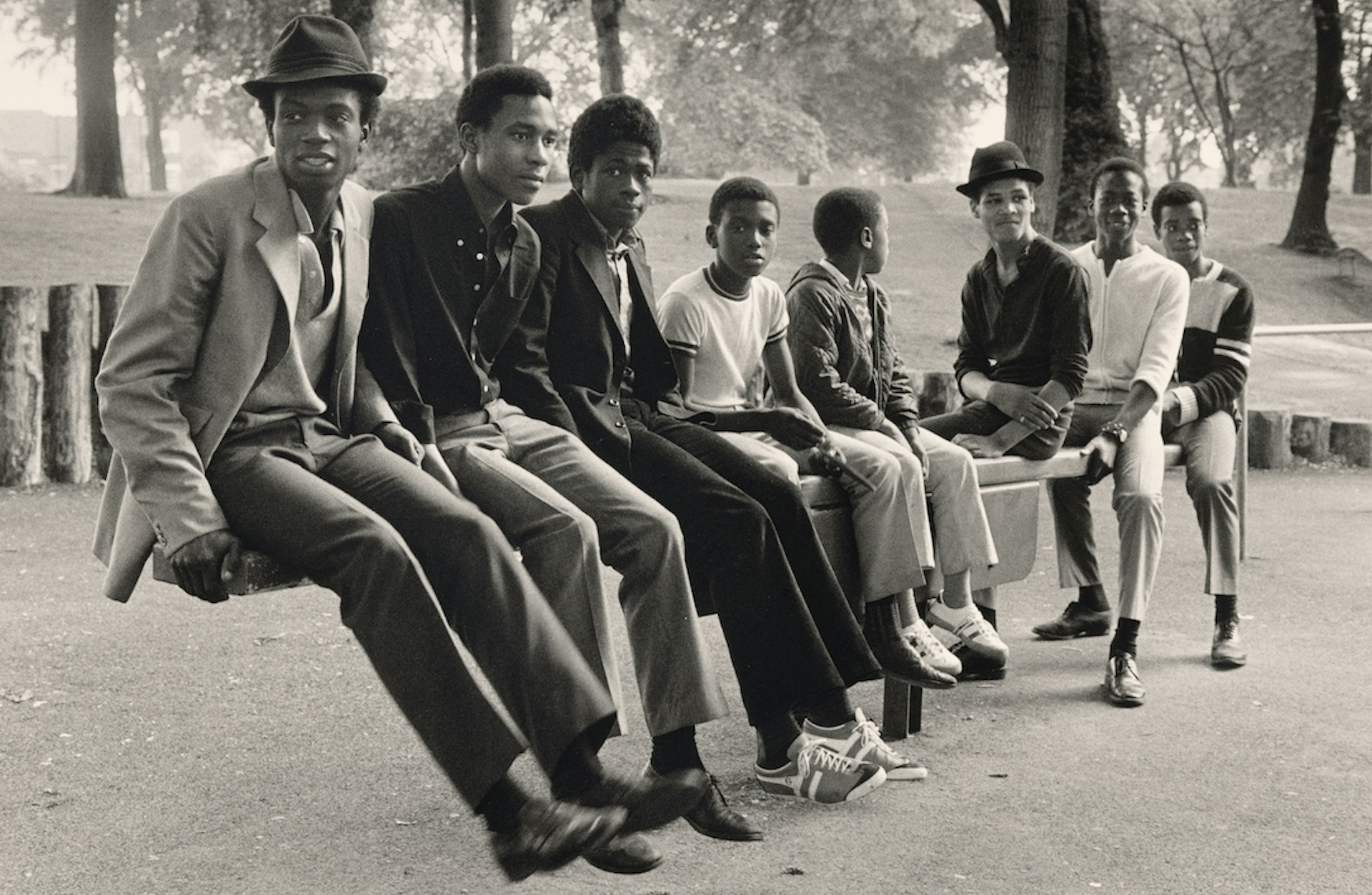
Young Men on See-Saw, Handsworth Park, Birmingham, 1984 by Vanley Burke
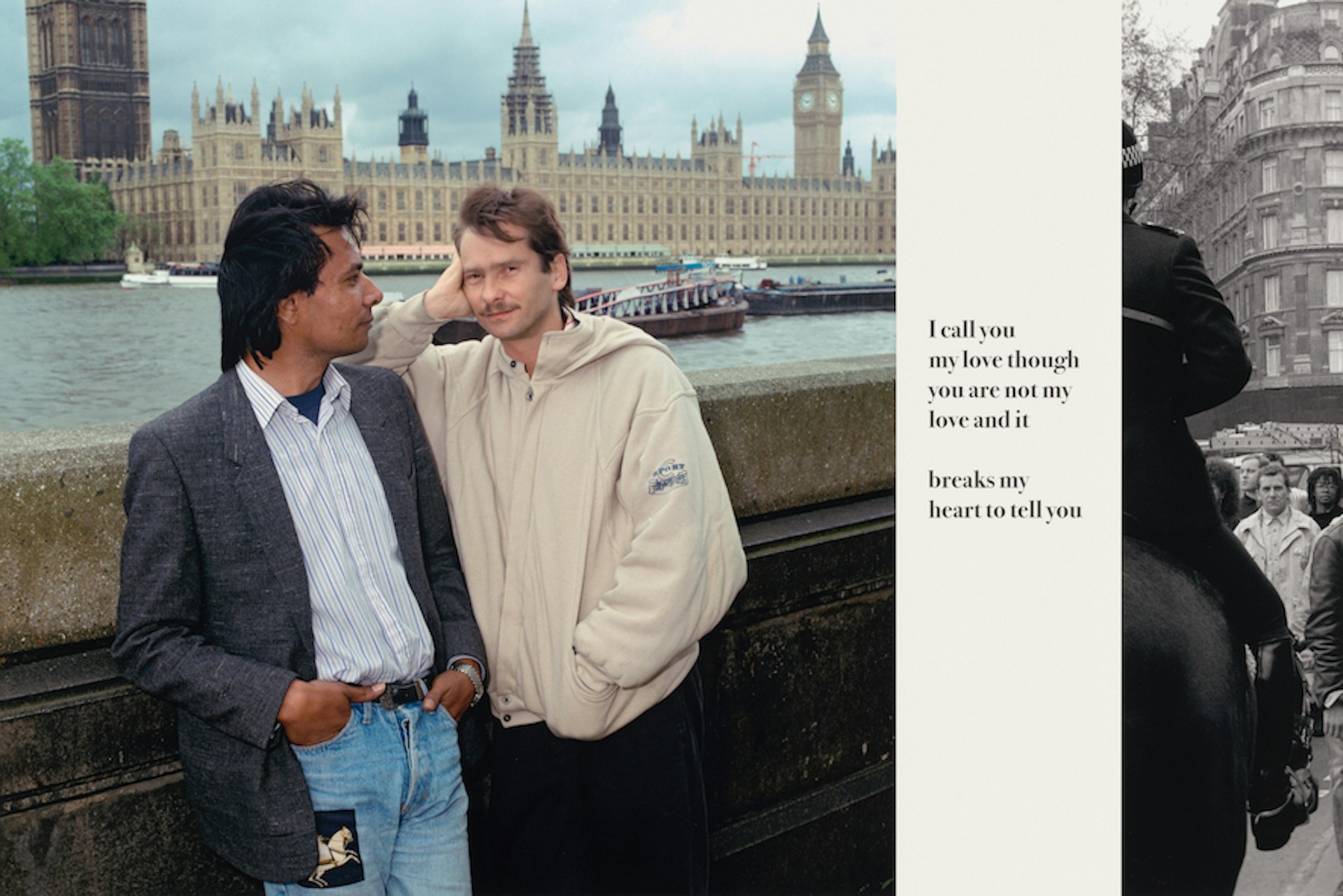
Untitled #1 from the series “Pretended” Family Relationships, 1988 by Sunil Gupta
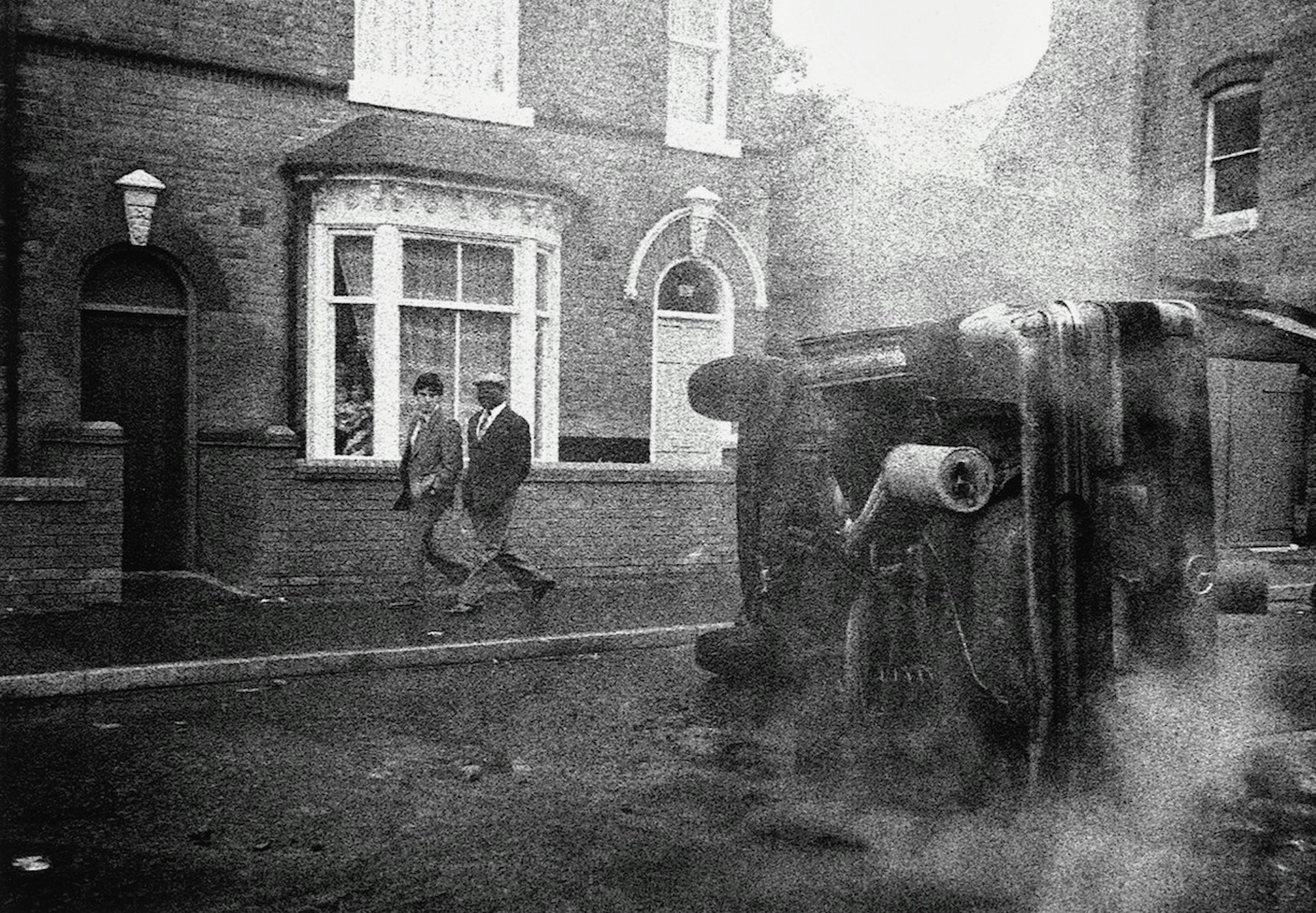
Handsworth Riots: Birmingham, United Kingdom, September 1985 by Pogus Caesar
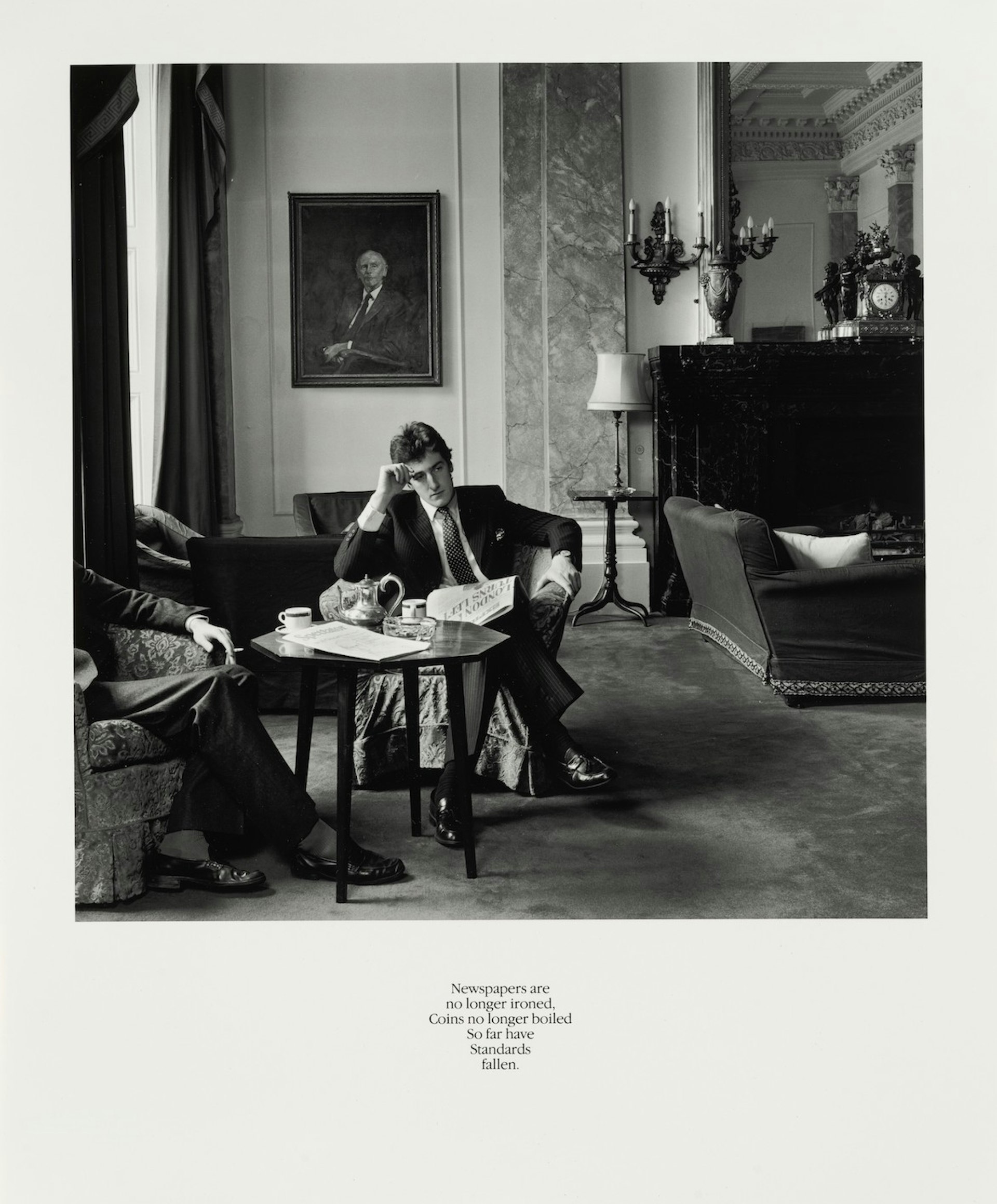
Newspapers are no longer ironed, Coins no longer boiled So far have Standards Fallen from the series Gentlemen, 1981-1983 by Karen Knorr
This Is Britain: Photographs from the 1970s and 1980s is on view January 29 to June 11, 2023, at National Gallery of Art in Washington DC.
Enjoyed this article? Like Huck on Facebook or follow us on Twitter and Instagram.
